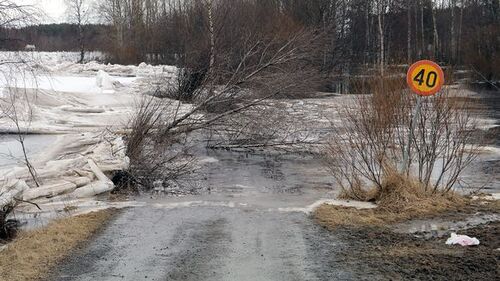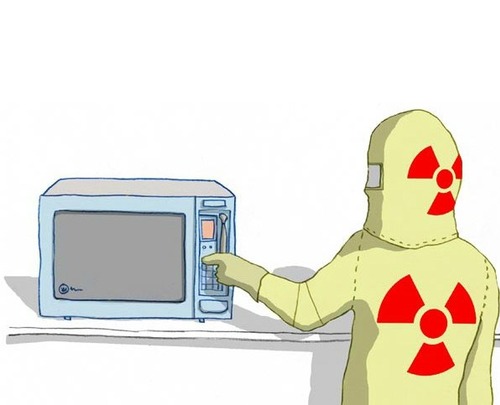-
-
Par GUETTEURNORDIQUE le 27 Juin 2016 à 10:55
Helsinki 2050: diverse and tolerant or isolated and segregated?
City leaders like deputy mayor Pekka Sauri are thinking big when they picture Helsinki in the year 2050. They see an outward-looking, liberal and diverse city that is more open than ever to the wider world. However some experts say that Helsinki will face major challenges dealing with a more heterogeneous and geographically open capital region - and municipal officials will have to ensure that new arrivals to the city don't end up in segregated neighbourhoods.
What do municipal leaders see when they picture Helsinki in the year 2050? According to deputy mayor Pekka Sauri, the population will be bigger, rising from just under 900,000 today to 1.5 million. And the city will be much more diverse than it is today.
"In the year 2050 about 30 percent of the population of Helsinki will speak languages other than Finnish and Swedish. Primarily Russian, Estonian, English, as well as languages from Africa, China and the Middle East," Sauri said.
Although he acknowledges that integrating newcomers into the country requires additional resources and new strategies, Sauri said that he doesn't foresee any social problems arising from the city’s increased non-Finnish population.
"I am confident that Finland and Helsinki, which have the most highly educated citizens on the planet, are quite prepared to do that," the deputy mayor told Yle News.
However last year Helsinki University lecturer and researcher Johannes Kananen sounded a warning, noting that urban research in Finland had shown a growing trend toward residential segregation in the capital. Kananen noted that socio-economic segregation meant that eastern and northern parts of Helsinki tended to feature the greatest diversity, and at the same time were socio-economically worse off than other areas.
Efforts needed to prevent inequality, ghettoization.
Helsinki University assistant professor of sociology Lena Näre agrees with Sauri’s projections for a more diverse Helsinki than today’s city. However she doesn’t share his seemingly boundless optimism that Finns have all the answers to deal with the many social challenges that immigration may bring. Näre said that city leaders will have to be vigilant to ensure that different forms of inequality don’t arise.
"Providing options for social mobility for everyone, preventing segregation, preventing developments where we have neighbourhoods where people are poor. Research has proven that mixed housing policy is the best way to prevent that and ensure a more equal way forward," Näre suggested.
The sociologist and researcher also said that would require Finns to re-think and possibly broaden their concept of Finnishness.
"The language requirements cannot be as high as they are at the moment. We need to understand that Finnish can be spoken with very different accents. We need to think of our institutions in a way that they don’t take homogeneous Finnishness as the starting point," Näre added.
The sociologist noted that Helsinki isn't a stranger to diversity - she pointed out that in 1870, 17 percent of the capital spoke foreign languages - more than today's estimated 11 percent.
Housing still a distant dream for the homeless.
Näre’s view stresses the importance of housing policy to prevent inequalities between native Finns and Helsinki residents with immigrant backgrounds in 2050. Sanna Tiivola, executive director of the NGO No Fixed Abode, also said that housing policy is the key to tackling Helsinki’s inevitable homeless problem in 2050.
Sanna Tiivola of the NGO No Fixed Abode says decision-makers will have to come up with innovative ideas to keep homelessness in check.
She pointed out that the metropolitan population has been growing since 1952 – her current projections also put the population in 2050 at around 1.5 million. Tiivola said that the homeless problem has been expanding along with the region’s headcount, although it remains relatively low by European standards. Since the addition of new housing stock has not kept pace with population growth over the years, the situation is hardly likely to be any different in 2050, she said.
In 2015 official data put the number of homeless in Finland at 7,000, down from a peak of nearly 20,000 in 1987. Half of the country's indigent people reside in the capital area and a growing number are immigrants. Generally city officials and NGOs can only provide assistance to destitute people who are registered in the capital region.
"We need a strategy and money for government programs, good attempts are ongoing to resolve the problem but homeless people need to be more involved in working groups, and contribute their needs, take that into account and see what happens," Tiivola said.
Climate pressures on migration
Traditional internal migration from within Finland to the metropolitan area as well as external cross-border migration are not the only factors that could influence population growth in Helsinki. According to meteorologist Pauli Jokinen, if world leaders don’t get their act together to rein in rising global temperatures and resulting climate change, by 2050 Helsinki could see the arrival of climate refugees.
"People are concerned about climate refugees, where masses of people have to move because their own living conditions are so bad – so hot or so dry that they have to move," Jokinen speculated.
Extreme weather could push people to relocate, says meteorologist Pauli Jokinen. Image: Antti Pylväs / Yle
"So Finland and Helsinki might be a very good choice because living conditions might still be good, it’s not too hot during the summer, it’s not too dry, so people might flock to cities like Helsinki."
Jokinen, who works with the Finnish Meteorological Institute (FMI), said that one of the immediate outcomes of climate change that will affect Helsinki as well as other parts of the world is rising sea levels. He noted that although this is currently being factored into zoning decisions in Helsinki, it will have to be balanced with the pressure to build waterfront properties.
Darker winters and warmer summers.
If climate change continues at its present rate, Jokinen said, Helsinki residents can expect to see changes in local weather.
"During the winter months we do expect to see, especially in Helsinki, less snow because of the rising temperatures, and in addition to the increased cloudiness it means that the winters will be darker because there’s just not much sunlight and there’s no snow to actually reflect light."
Jokinen added that given the rising summer temperatures recorded in recent years, Finns – and Helsinki residents – can also expect warmer temperatures, with record highs occurring more frequently – once every 10 or 15 years instead of once every 60 years.
According to Sauri, the kernel of his vision for Helsinki involves a rail tunnel between Helsinki and Tallinn, which would connect Finland to the Baltic countries and central Europe via the EU’s nearly 1,000 kilometre-long Rail Baltica high speed train connection.
The deputy mayor said that without this lifeline, Helsinki will remain an island, largely isolated from continental Europe. It's a development that's also likely to tempt more newcomers to travel -- and possibly settle - in the north.
How well city leaders prepare for this unprecedented level of exposure will determine whether Helsinki in 2050 is a more diverse and tolerant place to live, or more isolated and segregated than city officials can now imagine.
http://yle.fi/uutiset/helsinki_2050_-_diverse_and_tolerant_or_isolated_and_segregated/8935308
 votre commentaire
votre commentaire
-
Par GUETTEURNORDIQUE le 26 Juin 2016 à 10:45
We all have a microwave in the kitchen, which is one of the appliances that make life easier. But how many of us know the dangers we expose ourselves using it day by day, in a hurry or just convenience? The secret of the oven is a small device called magnetron, which converts the received electricity to short-frequency radio waves, that is, in a kind of electromagnetic radiation.
These waves directly affect the water molecules in food to vibrate which produces heat. So that’s how you heat or cook food in the microwave.
Microwave acts in form of non-ionizing radiation. Ionizing electromagnetic radiation change the nature of ionized atoms. This change how they interact with other atoms and molecules around them. A pertinent question, that requires a clear answer, is whether or not these ovens are healthy for cooking?
The answer is – no!
Gamma rays, X-rays and nuclear medicine (CT scanner) are types of ionizing radiation. The food is attacked by waves of high frequency heat! Experts say that this radiation can be harmful to health.
Antioxidants are destroyed by maintaining the food for long time on the heat or in the microwave, and by using too much water in cooking. Even more than that, because microwave cooking time is much shorter, it seems that antioxidants survive greater than the boiling or baking or other methods. In addition, it seems that vegetables cooked with too much water lose their antioxidants.
It is strictly prohibited to heat food in plastic, metal or aluminum, just glass and ceramics accepted only. Heating food in wrong packaging can harm health as there is a risk that such materials give off dangerous chemicals that end up eventually in our body.
Here are the most common diseases that are caused by microwave ovens:
– Fatigue- microwave ovens can be the cause of chronic fatigue and obesity.
– Insomnia – Be aware that the impact of microwaves can cause damage to the brain.
– Loss of nutrients – microwave kills the most important nutrients from foods;
– Eliminate antioxidants – microwave oven destroys antioxidants in foods and increases the risk of heart attacks and high cholesterol
– Cancer – radiation emitted by microwave ovens accumulate in the human body and can cause cancer.
http://cosmopolitanladies.com/5-diseases-caused-microwave-oven/
 votre commentaire
votre commentaire
-
Par GUETTEURNORDIQUE le 25 Juin 2016 à 12:03
After a historic referendum on whether to remain in the European Union, Britain voted 51.9 to 48.1 percent to leave the power bloc. For the UK, this is just the latest example that the nation is different from the rest of the continent. For the EU, the event joins terrorism worries, the refugee crisis, and financial woes as yet another strain on an “ever closer union.”
The Brexit (short for British exit) referendum—which had the highest turnout of any UK-wide vote since 1992—drove a dip in stock markets, with the Dow Jones industrial average falling over 2.5 percent and the British pound dropping to its lowest level against the U.S. dollar since 1985.
A man in London picks up a copy of a newspaper the day after the United Kingdom voted to leave the European Union (June 24, 2016). Source: Daniel Sorabji/AFP/Getty Images.
After the results were made official, British Prime Minister David Cameron announced he will resign in October. In a speech outside 10 Downing Street, he said that the nation needed “fresh leadership” and he does not believe he is the right person to “be the captain that steers our country to its next destination.”
Mr. Cameron disagreed with the vote result, but still stated, “The British people have voted to leave the European Union and their will must be respected.”
The UK is the second largest economy in the power bloc, which makes its decision to leave a weighty blow for Europe. Leaders across the continent attempted to calm fears and called for greater solidarity in the coming weeks and months:
- German Chancellor Angela Merkel addressed European leaders by saying “we have to remain calm and composed…time and time again we are confronted with people who have [affected] the direction the European integration process has taken. That does not only refer to Great Britain, but to some extent…to other countries as well.” She added: “We have to draw our conclusions of the European exit decision with historical dimensions. It may be hard to imagine, but we should never forget, especially in these days and hours, that European unity is the idea of European peace after centuries of terrible bloodshed.”
- EU Parliament President Martin Schulz stated, “…for the remaining EU members, it means that we will have to unite to tackle the necessary reforms in the fight against unemployment and for social justice, against tax evasion, and to solve the migration problems together.”
- French President Francois Hollande said Europe faces “immense danger” as calls for a “Frexit” (a vote on France’s departure from the EU) heightened. Speaking to France’s top ministers at the Elysee Palace after the Brexit vote, he stated: “The vote puts the European Union in difficulties. It must recognize its shortfalls.”
Pro-Brexit campaigners hailed the outcome as a victory and pointed to the long-term benefits. Ex-London mayor Boris Johnson, a favorite to replace Mr. Cameron, called the vote result a “glorious opportunity” for the UK to have full control over its own laws, taxes and borders.
Although the referendum puts Britain on track to sever itself from the EU, the process will take years. First, the nation must pass laws to allow it to leave the EU, repeal the 1972 European Communities Act, and inform the European Council to invoke Article 50—formally stating its intention to withdraw. Article 50 will provide Britain two years to negotiate terms of exit. All 27 remaining EU members would have to reach a deal with the UK within this time. Meanwhile, the UK must continue to abide by EU laws.
Once all this has occurred, the British Parliament could then begin the process of repealing EU regulations.
Even though it will be some time before the UK is officially out of the EU, the Brexit vote is expected to spur major geopolitical shifts throughout Europe. A YouGov poll showed that Sweden, Norway, the Netherlands, Ireland and Denmark are now likely to host their own votes on whether to withdraw.
The vote also reignited tensions between Scotland and England, as the northern country voted to remain in the European Union.
Scottish First Minister Nicola Sturgeon said she is “absolutely determined” to keep Scotland in the EU, which very likely means the country will hold a referendum on independence from the UK. Pro-EU Wales and Northern Ireland expressed similar sentiments.
In addition, analysts predict that Britain’s departure from the EU would push Germany to take on a more dominant position in Europe.
None of this news should come as a surprise for regular readers of The Real Truth. We have always held the belief that a UK-EU divorce was coming and informed readers to watch for an emerging Germany.
The July 2015 article “Britain and the EU: Headed for a Split?” included a telling quote from Mr. Cameron taken from a speech on the in-out referendum: “I know that the United Kingdom is sometimes seen as an argumentative and rather strong-minded member of the family of European nations.
“And it’s true that our geography has shaped our psychology.
“We have the character of an island nation—independent, forthright, passionate in defense of our sovereignty.
“We can no more change this British sensibility than we can drain the English Channel.”
It is this sensibility—Britain’s national character—that has kept the country from fully integrating with the EU. But that character runs deeper, and carries a longer history, than most realize.
The article continued by stating that the British people’s independent streak “has more to do with their national character than most grasp,” and that their “difference of opinion does not merely stem from their own ideologies, but from their historical roots, which have always ensured that a continued union would not be possible.
“Intrigued? “The book America and Britain in Prophecy contains the reason the union between this particular nation and Europe is not destined to last—and what lies ahead for the ultimate future of both the continent and the island. You will be stunned by what you read.”
 votre commentaire
votre commentaire









